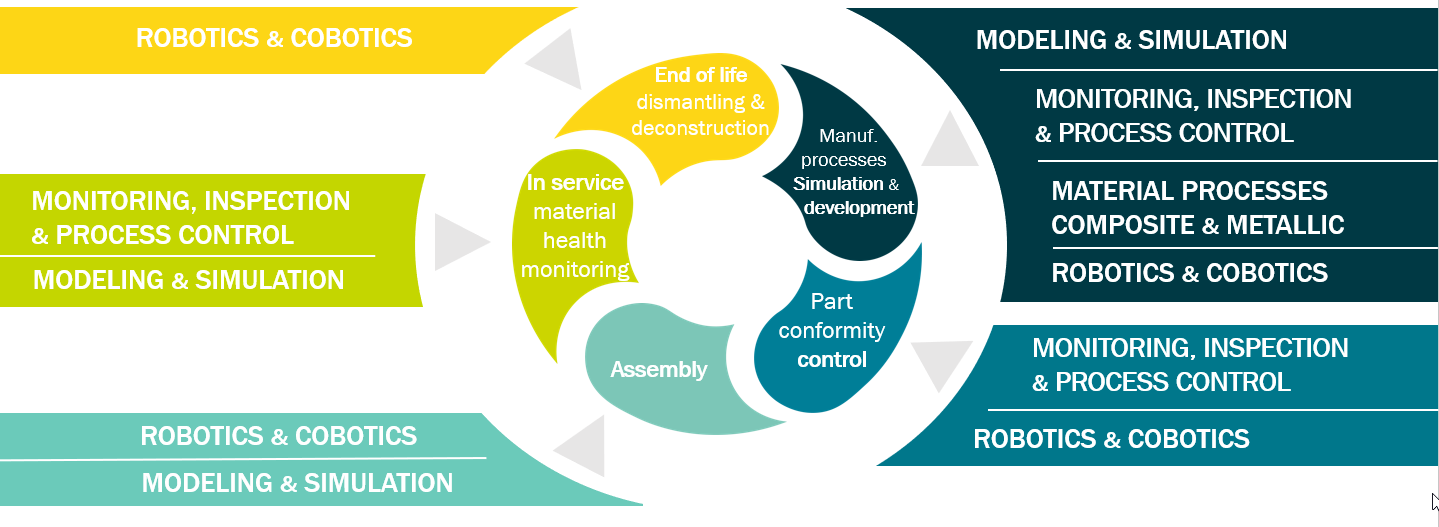IRT Jules Verne

IRT JULES VERNE:the industrial & collaborative research center for manufacturing
Our vocation ? Boosting the competitiveness of French industries
Our mission ? Accelerating innovation & technology transfer to factories
Our core business ? Supporting manufacturers & promoting collaborative research
For a response tailored to your technological challenges, the IRT Jules Verne has set up a flexible, agile organization, offering a cross-cutting response based on expertise and collaboration, focusing on performance, flexibility and business transitions.
With its industrial and academic partners, the IRT Jules Verne is working on the maturation of innovative technologies in 5 research areas:
- Forming and preforming processes
- Assembly and joining technologies
- Additive manufacturing processes
- Mobility in the industrial environment
- Manufacturing flexibility
By combining 5 complementary areas of expertise, the IRT Jules Verne offers access to high-level skills, state-of-the-art industrial equipment and industrial-scale demonstrators.
- Modeling & Simulation
- Composite material processes
- Metallic material processes
- Robotics & cobotics
- Monitoring, inspection & process control
Major competitiveness challenges & technological issues to be adressed
Focus on performance, flexibility & transitions
 |
 |
 |
 |
||||
|
|
|
|
Our combined technological expertise to respond to life-cycle stakes

Who are our solutions designed for ?
 |
 |
 |
 |
 |
Working closely with production equipment manufacturers and integrators, IRT Jules Verne caters to 4 strategic industrial sectors.
Overview of the IRT Jules Verne offer
 |
||
|
|
|


